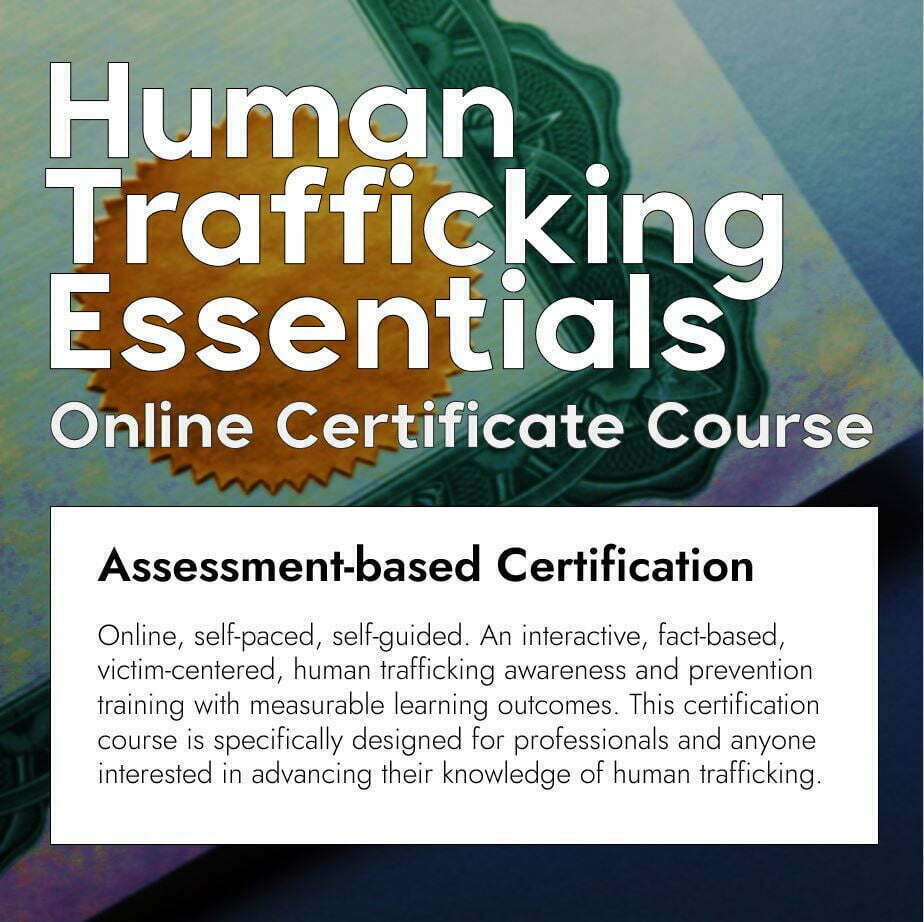Why is human trafficking investigation work necessary?

Who should carry out human trafficking investigation?
Even once we reach the conclusion that human trafficking investigations are necessary, some people might have concerns about whether nonprofits should be involved. What if we just left investigative work to law enforcement?
The reality is that police are often extremely under-resourced to combat modern-day slavery, especially in low-income countries where technology and manpower might be sparse. Even in the United States, nonprofits have become key players in the fight for freedom.
Time, personnel, and funding
“For local law enforcement, one of the biggest hurdles in investigating human trafficking is having the availability of officers to handle a crime like this,” explains Theresa Nietzel, a human trafficking investigator with the Erie County, New York Sherrif's Office. “The solution is having partners who are trained to do this. It's important for agencies to realize that help is available and they don't have to do it alone.”
Matt Blumenthal, a sergeant with the San Diego County Sheriff's Department, told Thorn how tips from a variety of sources have become integral to the Sheriff Department's work: “We receive tips and leads from various sources and vigorously investigate everything we get our hands on. We network with other law enforcement agencies, NGOs, churches, schools, military, hospitals, and many other entities.”
Even in a relatively well-resourced police force with a human trafficking team, like that of Colorado Springs, Colorado (where The Exodus Road's U.S. office is located), the time-intensive nature of human trafficking investigation greatly limits how many cases they can pursue. According to Former Metro Vice Unit Commander Scott Whittington, investigating just one illicit massage parlor takes hundreds of hours.
Nonprofits like The Exodus Road, with their highly skilled and vetted investigative teams and access to technology platforms for online investigations, have become a key part of filling in those gaps in personnel and man hours. With many of the investigators coming from a military or police background, they're adept at collaborating with law enforcement.
With dedicated time and attention focused on this one issue, nonprofits are able to ease the burden on government officials. This allows officials to respond to more people who need help now.
Expertise and training to fight human trafficking
Another key resource that nonprofits can offer law enforcement is expertise and training. Because police training must cover a wide array of criminal industries, time dedicated to human trafficking training might be limited.
Non-governmental investigators usually have much more focused areas of expertise. As they spend all their time investigating trafficking, they may even learn of valuable tactics and trends that they can bring back to police. In Brazil, The Exodus Road has combined the experience of our investigators with that of anti-trafficking experts native to the country.
The result is TraffickWatch Academy Brazil, a training program that is already resulting in more successful investigations — such as the story of Anna. Anna was kidnapped from her home in Paraguay and forced into sex work in Brazil. Police were able to notice red flags of trafficking because of the TraffickWatch Academy training. Thanks to this, Anna was liberated and reunited with her family.
One other asset nonprofits can offer is community access. The UNODC explains that civilian involvement is vital for accessing individuals who might be suspicious of law enforcement. This applies to relationships built with traffickers to gather evidence.
More importantly, nonprofit involvement supports survivors. Traffickers may have threatened survivors extensively with arrest or deportation if they communicate with law enforcement. Survivors may have been arrested in the past (sometimes mistakenly, their trafficked status going unnoticed). This means that in the course of an investigation, intervention, and ensuing court case, nonprofits can become crucial advocates for survivors.
This “Eyes on Trafficking” story is reprinted from its original online location.
 ABOUT PBJ LEARNING
ABOUT PBJ LEARNING
PBJ Learning is a leading provider of online human trafficking training, focusing on awareness and prevention education. Their interactive Human Trafficking Essentials online course is used worldwide to educate professionals and individuals how to recognize human trafficking and how to respond to potential victims. Learn on any web browser (even your mobile phone) at any time.
More stories like this can be found in your PBJ Learning Knowledge Vault.
EYES ON TRAFFICKING
This “Eyes on Trafficking” story is reprinted from its original online location.
ABOUT PBJ LEARNING
PBJ Learning is a leading provider of online human trafficking training, focusing on awareness and prevention education. Their interactive Human Trafficking Essentials online course is used worldwide to educate professionals and individuals how to recognize human trafficking and how to respond to potential victims. Learn on any web browser (even your mobile phone) at any time.
More stories like this can be found in your PBJ Learning Knowledge Vault.
